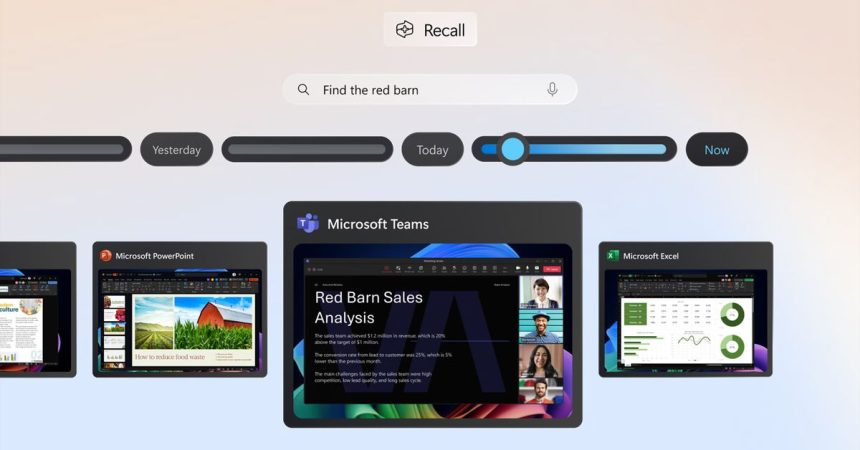Microsoft’s Recall feature, a controversial addition to Windows 11, captures snapshots of on-screen activity, creating a searchable timeline of a user’s digital interactions. Despite initial privacy concerns and security vulnerabilities, the feature is currently in testing with Windows Insiders. The setup process is described as clunky and involves multiple downloads and installations of AI models through Windows Update. The core functionality revolves around snapshots, akin to screenshots, which are stored in a searchable database. These snapshots capture a wide range of information, including emails, messages, photos, and even unsent drafts, raising legitimate privacy concerns. Microsoft provides options to exclude specific apps or websites from being captured and allows for the deletion of individual snapshots.
The author’s initial experience with Recall was unsettling due to the sheer amount of personal information captured. However, after customizing the settings and excluding certain applications, the feature faded into the background until two specific incidents highlighted its potential utility. The first involved locating a specific online retailer offering the best price on a Christmas gift. After losing the website in a multitude of open tabs, Recall’s search functionality instantly located the relevant snapshot based on a price point, demonstrating its speed and efficiency compared to traditional browser history searches. The second instance involved reviewing social media profiles related to a news story, which were subsequently removed by the platforms. Recall had preserved these profiles in its snapshots, enabling offline review without relying on external archiving services. This functionality proves particularly useful for journalists who need to document potentially ephemeral online content.
Despite the impressive search capabilities, the author expresses continued reservations about the privacy implications of storing such a comprehensive digital trail. Concerns also remain about the security of the stored data, although Microsoft has implemented changes, including mandatory Windows Hello authentication for accessing Recall. This added security measure, while inconvenient, is deemed a necessary trade-off. It’s important to note that Recall is currently exclusive to Copilot Plus PCs, requiring a dedicated NPU for optimal performance. This counters misinformation suggesting a wider rollout to all Windows 11 machines. The author expresses hope that similar AI-powered enhancements, like natural language search, will eventually be integrated into the standard Windows Search without necessitating the snapshotting functionality.
Beyond the Recall feature, the summary also touches upon various Microsoft-related news items. These include a software engineer’s resignation in protest against Microsoft’s military contracts with Israel, an anticipated $800 million impairment charge related to Cruise’s robotaxi service, and improvements to the Phone Link app for iPhone users. There are updates on Xbox game streaming, the Xbox app’s evolution into a centralized PC gaming hub, Microsoft AI’s new health unit, and UI changes to Copilot on Windows. Further news covers Microsoft 365 outages, Windows 11 updates, a unique Xbox 360-themed sweater, and a Captain America-themed advertisement for Copilot Plus PCs.
Other developments include personnel changes, with a key Windows executive leaving Microsoft, rumors of a Surface lineup refresh in 2025 with Copilot Plus integration, and Microsoft’s playful entry into the Bluesky social media platform. The summary also notes Google’s request to the FTC to challenge Microsoft’s exclusive cloud deal with OpenAI, the discontinuation of the Surface Studio 2 Plus, the expansion of Recall testing to Intel and AMD Copilot Plus PCs, and the removal of the “suggested actions” feature from Windows 11. Finally, the potential addition of an emoji button to the Windows 11 system tray is mentioned, along with Xbox’s sponsorship of darts player Luke Littler.
Overall, the author’s experience with Recall highlights a compelling tension between enhanced functionality and privacy concerns. While the feature’s ability to instantly surface past digital activities offers undeniable practical benefits, the comprehensive nature of the data collection raises legitimate questions about the potential risks. The future of Recall and similar AI-powered features will likely depend on Microsoft’s ability to address these privacy issues while continuing to refine the technology and demonstrate its value to users. The broader landscape of Microsoft news reflects the company’s continued push into AI integration, cloud services, and gaming, while also navigating regulatory challenges and public scrutiny.



